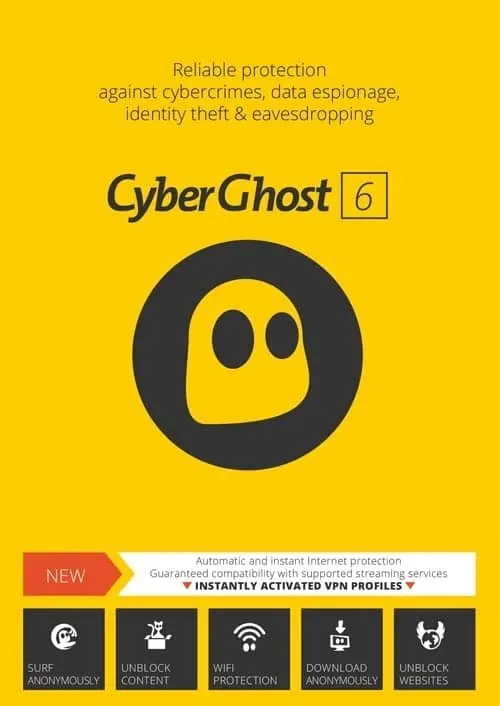It seems that most common features users look at when selecting a VPN service provider is the cost of the service, the number of global connection options, and the number of simultaneous connections.
The number of simultaneous connections available is becoming more important with each passing year. As a society, we are becoming increasingly dependent on computing devices that can connect to the Internet. And this trend does show any sign of slowing down.
In fact, the number of devices that connect to the Internet are accelerating at exponential rates. The latest development is IoT, or the Internet of things. The number of devices that connect to the Internet have exceeded the number of human beings on the planet, and Internet technologies are shaping our world in ways we could never have dreamed of.
Automobiles, appliances, televisions, and even a handful of oddball devices like refrigerators can connect to the Internet these days.
Each and every one of these devices needs a secure Internet connection, lest thou become hacked. On a more practical note, most people have several devices that they regularly use including tablets, smartphones, laptops, and desktop computers.
If you’re using a VPN provider that only allows connections between one handheld device and one computer, it can become a real challenge trying to keep all of your devices secured. This is an even bigger problem for families who want to secure all of their devices.
It simply isn’t efficient for a family to get one VPN account for each member of their family, as the costs could rise dramatically. The good news is that there are several things you can do to secure all of your devices, including terminating a VPN connection at your router and selecting a VPN provider with a high number of simultaneous connections.
Before we dig into the best providers, let’s take a moment to discuss terminating a VPN at your router.

Creating a Site-to-Site VPN Tunnel
Many users are unaware of the fact that they don’t need to establish a VPN connection between their device and the VPN server to encrypt traffic. A more advantageous solution is to establish a VPN connection between your router and the VPN server.
This type of VPN tunnel is called a site-to-site tunnel, and it is an always on connection. And since your router technically qualifies as one device, it is then able to secure a virtually limitless number of devices.
In fact, any device that is connected to your local network will be secured since the data is routed through the VPN tunnel – even guests. This is also a huge advantage if you live in a country where you don’t have access to geo-restricted content services like Netflix, Hulu, and others.
In fact, this is your only option if you want to unblock content for a SmartTV since they don’t have the capacity to terminate a VPN connection.
This is a great technique to use to conserve the number of simultaneous connections. If, for example, your VPN provider allows 5 simultaneous connections, you will still have 4 left after securing every device on your local network. There are, however, a few things you’ll need. Firstly, you need a router capable of terminating a VPN connection.
Most out-of-the-box home routers lack this capacity with their OEM firmware. As such, you’ll need a router capable of running either DD-WRT or Tomato. Fortunately, these operating systems support the vast majority of the most popular router models. With that said, let’s take a look at the best VPNs for simultaneous connections.
Private Internet Access VPN
PIA VPN is our top pick for simultaneous connections. You’ll find that several providers, like PIA VPN, will offer up to 5 simultaneous connections per account. But one thing that sets PIA apart from the competition is how cheaply they are priced.
With an annual subscription, the monthly cost is only $3.33, making them one of the most inexpensive providers to secure a large number of devices. That price means that users are only paying $0.67 cents per device.
We also like their service because they have a 7-day money back guarantee (though no free trial) and 24/7 customer support. Furthermore, they are a great choice for Bit Torrent users since they allow P2P traffic over their servers and their software includes a DNS lead protection mechanism.
One disadvantage of their service, however, is that they aren’t present in as many countries as their competitors, though they do have higher server capacity. To date they run some 3,100 servers in 24 countries, and they are supported on all the major operating system platforms. Read our full PIA Review here.
PureVPN
PureVPN is our runner up, mainly because the two largest factors we were looking at were the number of simultaneous connections and the monthly cost. Like PIA VPN, PureVPN also allows up to 5 simultaneous connections per account.
However, they do cost slightly more, though they are still one of the cheaper VPN services available. At the cheapest rate, the monthly cost of their service is $4.16. This makes the per device cost only $0.83 cents with five devices.
One area where PureVPN beats PIA is their number of global connection options. Opposite from PIA, PureVPN has one of the most widespread networks of VPN servers. To date they offer connections to 500+ servers in 140 countries and 181 locations around the globe. They do not have a free trial, but they do have a 7-day money back guarantee and 24/7 customer support.
TorGuard VPN
TorGuard has the distinct advantage of being based in Panama. This is a massive concern for people who are fearful that domestic US technology firms could be coerced into forfeiting customer information to the NSA.
They, like the previous providers, allow up to 5 simultaneous connections per account. Their VPN servers offer extremely strong connections using OpenVPN, L2TP/IPsec, and AES-256-bit encryption. Not only do their servers offer moderately fast connections, but they are so reliable that TorGuard has a 99.9% uptime guarantee.
Last but not least, their service can be purchased for as little as $5.00 per month, making the per-device cost only $1.00 per month.
CyberGhost VPN
Though CyberGhost doesn’t have as strong of a global presence as many of their competitors (665 servers in 26 countries), they do have several advantages. First of all, they too allow up to 5 simultaneous connections per account. In addition, they are based outside of the United States, freeing them from the invasive oversight of the NSA.
Though they do offer a free version of their service, it is extremely stripped down and only functions as a way to test the waters before making a purchase. And they’re a great fit for Bit Torrent users since they allow P2P traffic across their network.
VyprVPN

VyprVPN makes the list because the premier package of their service offers 3 simultaneous connections. While this isn’t as many as the previous providers, it is, admittedly, more than most standard providers offer.
In fact, most providers only allow up to 2 simultaneous connections per account. VyprVPN is the best choice for users who want additional layers of protection through extra security features.
Not only does VyprVPN include DNS leak protection and VPN kill-switch mechanisms, but they also include NAT firewall features in the pro and premier versions of their service. The software also provides the ability to route traffic across the VPN tunnel on a per-application basis.
And to date, they have 700+ servers in over 50 coutntries, which offers a decent amount of global connection options. While they don’t offer 5 simultaneous connections per account, some users may want to trade the extra two connections for advanced security features.
Final Thoughts
While there are many users that might be able to get away with only using a VPN service that allows two simultaneous connections per account, most users typically need more connections.
Computers and technology are so ubiquitous that more common items are connecting to the Internet than ever before. From SmartTV’s to household appliances, hackers have an unprecedented opportunity to steal personal information from unsuspecting victims.
Smartphones, tablets, desktop computers, and a smattering of other types of devices demand Internet security. Even if you opt for a VPN service provider that allows up to 5 simultaneous connections, it can still be extremely challenging securing all of your devices – especially if you have a family.
That’s one reason why I highly recommend that users build a site-to-site VPN tunnel by terminating their VPN service at their home router, thereby allowing them to secure virtually an unlimited number of devices with only 1 connection.
Just think: you can push all the data sent through your local network (e.g. every device that connects to your home Wi-Fi, even guest traffic) with a single connection. It may feel a little intimidating to setup a site-to-site tunnel, especially if you don’t consider yourself to be technologically literate.
But the good news is that the process is simple and relatively painless. All you need is the DD-WRT or Tomato software (which is free) and a compatible router.
The only alternative is using a VPN service provider that doesn’t secure all of your devices. Can you make it work? Sure, but it’s a large inconvenience and a huge hassle. Your VPN connection should always be on, or you risk losing valuable personal data or compromising your privacy and security.
If you’re looking for one of the best VPN providers for simultaneous connections, these 5 alternatives are the best on the market.
Check out our guide on how to find the right VPN for your needs, and which are the best VPNs.





